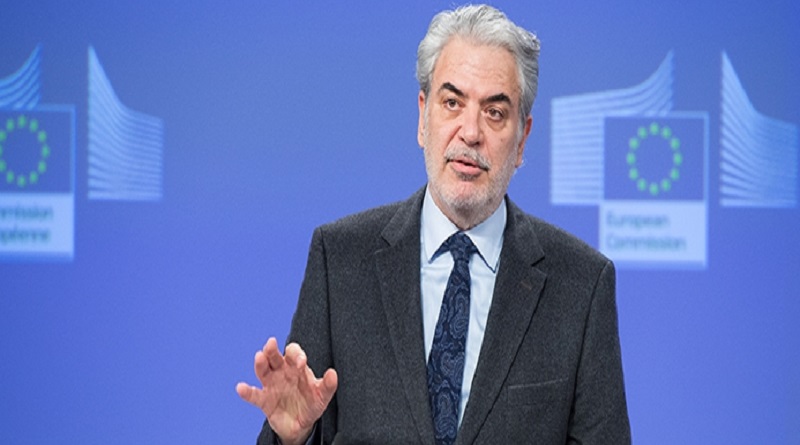Refugee crisis: EU approves €700 million emergency assistance
The European Commission on Tuesday proposed an “Emergency Assistance Instrument” to be used within the European Union to provide a faster, more targeted response to major crises, including helping Member States cope with large numbers of refugees. The initiative comes as the refugee crisis reaches an unprecedented scale with the need to provide immediate emergency support in several Member States hosting large amounts of refugees on their territories.
From the outset the Commission has been committed to supporting its Member States through all means possible and the proposal is a direct follow up to the European Council of 18-19 February, when governments called on the Commission to develop the capacity to provide emergency assistance internally.
European Commissioner for Humanitarian Aid and Crisis Management Christos Stylianides said: “With this proposal, we will be able to deliver emergency assistance for crises much faster than before, inside the European Union. Right now, there’s no doubt that this will be particularly needed to support refugees. No time can be lost in deploying all means possible to prevent humanitarian suffering within our own borders. Today’s proposal will make €700 million available to provide help where it is most needed. I now look to European governments and the European Parliament to quickly back the proposal”.
Member States whose own response capacities are overwhelmed by urgent and exceptional circumstances, such as the sudden influx of refugees or other major disruptions could benefit from this new instrument. The provision of emergency assistance will be based on Article 122(1) of the Treaty on the Functioning of the European Union. This will allow for support to be provided in the fastest and broadest possible way, in a spirit of solidarity between Member States. Emergency assistance would be provided in close coordination with Member States and organisations such as UN agencies, non-governmental organisations and international organisations, and include the provision of basic necessities such as food, shelter and medicine to the large numbers of children, women and men currently arriving in EU countries.
The Commission will urgently propose, to the European Parliament and to the Council as the budgetary authorities, an amending budget for 2016 of €300 million. A further €200 million will be earmarked for use in 2017 and 2018, respectively.
Funding would therefore not be diverted from existing external humanitarian aid programmes outside the EU. The EU remains committed to continue leading the international humanitarian response to the Syria crisis, amongst other global emergencies worldwide where EU humanitarian aid saves lives.
The European Commission is stepping up return procedures to Turkey
Meanwhile the Commission on Tuesday confirmed that Greece is in the process of returning 308 irregular migrants to Turkey. The European Union is stepping up its efforts to ensure those who do not qualify for international protection in Europe will be quickly and effectively returned to their countries of origin or transit.
Commissioner for Migration, Home Affairs and Citizenship Dimitris Avramopoulos said: “Under the EU-Turkey joint action plan we agreed to accelerate return and readmission procedures with Turkey. The European Commission has reinforced its support for cooperation on return between EU Member States and Turkey and today’s transfers of returnees from Greece to Turkey show that our efforts are starting to bear fruit. If we want to address the challenges of the refugee crisis successfully we need to get back to an orderly management of the migration flows: We have to make sure that those who are in need of protection will receive it, but it has to be clear as well that those who have no right to stay in the EU will be quickly and effectively returned.
SOURCE: European Commission
PHOTO: © European Union 2016 (European Commissioner for Humanitarian Aid and Crisis Management Christos Stylianides)




